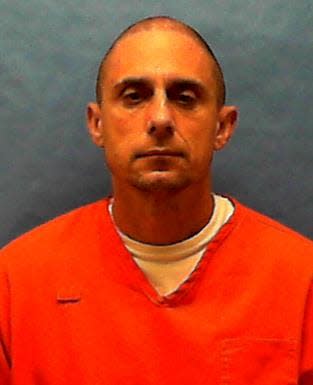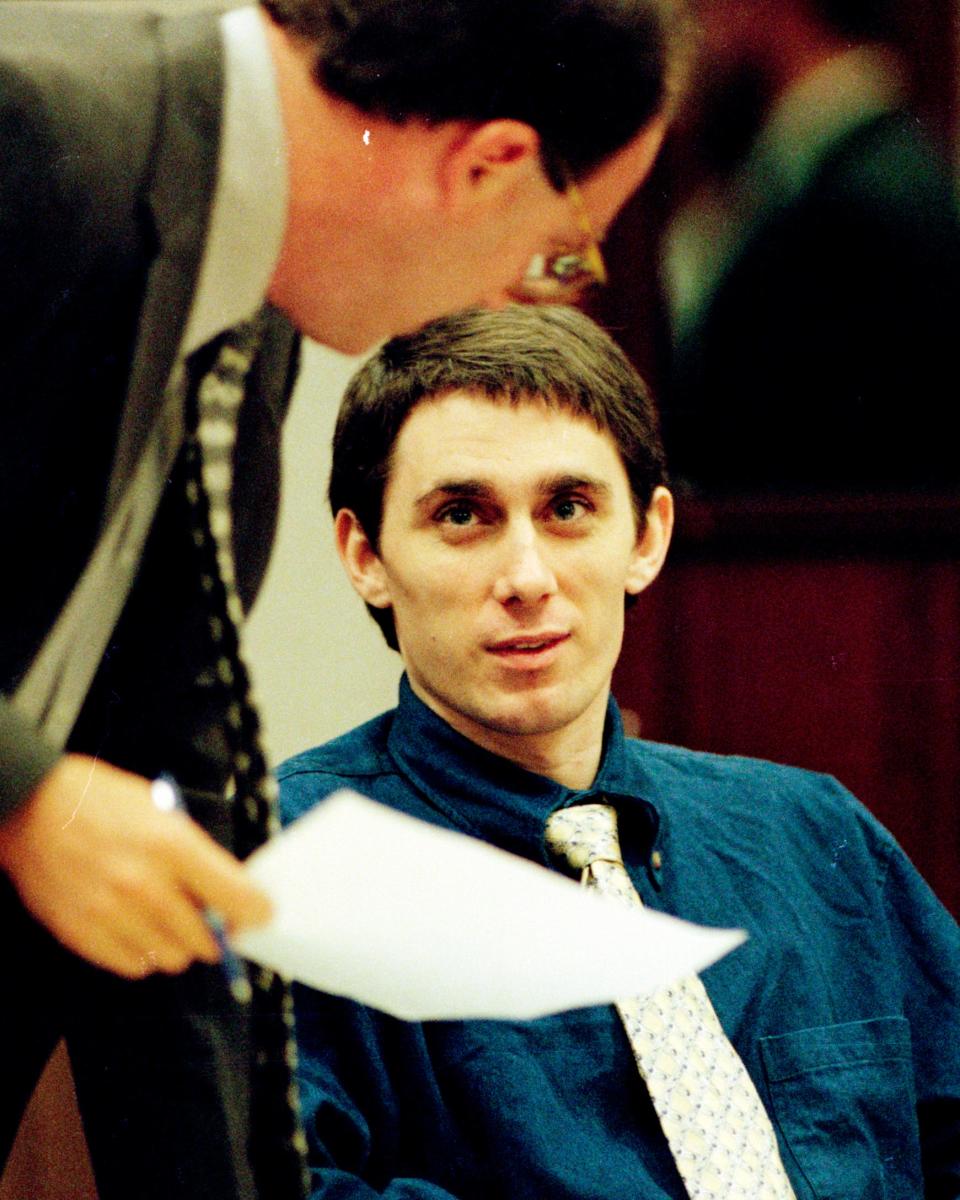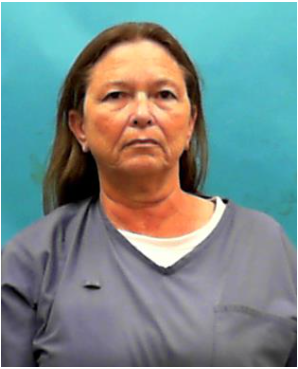State drops death penalty against Vero Beach man convicted in 1991 Murder-for-hire plot
VERO BEACH — After three trials, decades of appeals and living nearly 20 years on Florida’s death row, Paul Evans no longer faces a state execution for killing a Vero Beach man in 1991 in an infamous murder-for-hire plot, court records show.
During a brief hearing Tuesday, Evans, 50, was resentenced to life in prison without the possibility of parole for 25 years, according to Assistant State Attorney Brian Workman.
In exchange, the state dropped its intent to seek a new death sentence against Evans, who was convicted in 1999 of the shooting death of Alan Pfeiffer, 32, in a conspiracy launched by his estranged wife Connie Pfeiffer to kill him and collect a $120,000 life insurance payout.

Convicted murderer's appeal: Juror favored death penalty
Florida Supreme Court: Death sentence upheld in Vero murder
Defense attorneys: Death penalty for convicted Vero Beach killer 'cruel and unusual’
As part of his deal with prosecutors, Evans waived his right to any future appeals. And because he’s been imprisoned about 23 years, he agreed to hold off for another 10 years before applying for parole, meaning he would not be considered eligible for release before 2032.
Still, that doesn’t mean he would ever gain his freedom, Workman said Wednesday.
“I think it's extremely unlikely that he will get parole, ever. And that's based upon conversations I've had with people who work at … Florida's Commission on Offender Review,” Workman said. “I'm not aware of anyone who has ever gone from death row to parole. But at a minimum, this pushes back any possibility of even asking for that for at least 10 years.”
His punishment includes the parole provision, Workman said, only because under state law, Evans must be sentenced under guidelines in effect at the time of his conviction.
Evans’ attorney Antony Ryan said his client was “genuinely remorseful for his role in the events that led to death of Alan Pfeiffer."
“He is sorry for the loss of Mr. Pfeiffer’s life and for its impact on Mr. Pfeiffer’s family,” Ryan said Wednesday via email.
Ryan said a combination of Evans’ young age of 19 in 1991, the mental disorder and abnormal brain functioning he suffered from at the time, a sentence of death was a “disproportionate” punishment in his case.
Medical testing showed Evans “had frontal lobe damage and has had life-long brain dysfunction,” Ryan noted.
“In the years since 1991, medicine, neuroscience and the law have come to recognize that even the brains of healthy adolescents are not fully developed until one’s mid-20s and that the frontal lobe is among the last area of the brain to mature,” he said.
The American Bar Association since 2018, Ryan also noted, has called for defendants 21 years old and younger to be excluded from capital punishment.
Mandated resentencing
Evans’ death sentence has twice been vacated, most recently in 2017, a year after Florida's sentencing guidelines for the death penalty were ruled unconstitutional by the U.S. Supreme Court.
He is one of six death penalty cases from the Treasure Coast returned to court for a sentencing do-over after rulings by the U.S. Supreme Court and the Florida Supreme Court invalidated death sentences that followed less-than-unanimous jury recommendations.
The state’s revised death penalty law, enacted in 2018, requires a jury to reach a unanimous decision in recommending death.
Workman said the law changes influenced the state’s decision to not seek the death penalty against Evans.
“This case, when he was originally sentenced, was a 9-3 (jury) verdict for death, which casts some doubt on whether we would be able to get a unanimous verdict now, 25 years later,” he said. “The case didn't get any better over the last 25 years and the defense actually has different mitigation evidence this time.”
Alan Pfeiffer’s sister, who Workman said lives out-of-state and did not attend Tuesday’s hearing, was “on board” with the state’s move to drop the death penalty.
“She had the opportunity to consider it and consult with me and the victim advocate,” he said, “and she was in agreement, that this was the best way to proceed under the circumstances.”
The state made the same sentencing decision last month when it agreed to stop seeking the death penalty for Richard Johnson, 44, who also was granted a resentencing because the jury recommending his death was not unanimous.
Spared death sentence: Killer of Vero Beach waitress in 2001 ordered to prison for life
Johnson on April 18 was ordered to serve a life term after spending more than a dozen years under a death sentence after being convicted of the 2001 murder of Tammy Hagin, 35, whose body was discovered by police in the Savannas State Park in St. Lucie County.
Murder-for-hire plot
Evans' first trial ended in a hung jury in November 1998 and a second trial in January 1999 fizzled because of problems with jurors. A month later a jury convicted Evans of first-degree murder with a firearm and voted 9-3 to recommend he be sentenced to die in Florida’s electric chair.

Prosecutors described Evans as a money-hungry murderer who needed to pay the rent when he accepted Connie Pfeiffer's offer to kill her husband.
Connie Pfeiffer, Evans and two other women plotted the killing over several days, police said at the time of the arrests. They made the slaying look like a botched burglary, set up alibis and rented a car so Connie Pfeiffer's red Pontiac Fiero would not be recognized.
Jurors were told Connie Pfeiffer rented the car, accomplice Donna Waddell stole her father's gun and shortly before 9 p.m. March 23, 1991, Evans hid in Alan Pfeiffer's trailer until he came home from work. He then shot Pfeiffer three times, slid out a door and hopped into the waiting rental car.
The group then went to the county fair to establish what prosecutors said was an alibi.
Police found the man dead early the next morning in the Citrus Trailer Park on Malibu Drive. The gun was never recovered.
No one was arrested and the case grew cold. Finally, six years later in 1997, Evans' girlfriend, Sarah Thomas, was persuaded by investigators to get incriminating statements from Evans' former roommate.
Thomas, who shared a daughter with Evans, testified against him. She was never charged with a crime.
Connie Pfeiffer, who moved to Ocala and bought a horse farm after her husband's death, was arrested in June 1997. She was convicted two years later of hiring Evans to commit the murder.

Now 59, Connie Pfeiffer is serving a life term at the Lowell Correctional Institution in Ocala, state records show.
Waddell, 52, also testified against Evans after she entered a plea deal to second-degree murder in exchange for a prison term of seven to 22 years. She currently lives in Vero Beach after being released from prison in 2003, according to the Florida Department of Corrections.
Melissa E. Holsman is the legal affairs reporter for TCPalm and Treasure Coast Newspapers, and is writer and co-host of Uncertain Terms, a true crime podcast. Reach her at melissa.holsman@tcpalm.com.
This article originally appeared on Treasure Coast Newspapers: Murder-for-hire plot: Paul Evans to serve life, no death penalty

